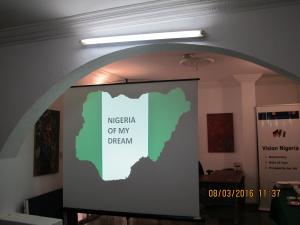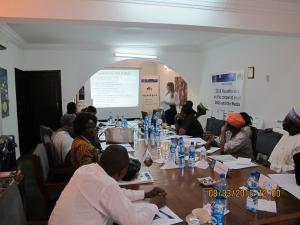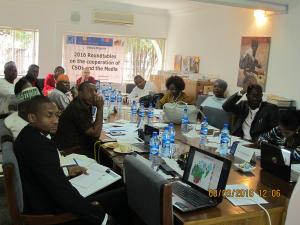Lecture
Details
After the important elections of 2015 Mr. Prince Herbert had the idea to know what kind of expectations the citizens have concerning the new government under the leadership of President Buhari.
Expectations of the citizens about their country, problems, fears and rising hopes were identified to see how citizens would effectively tackle these problems. The data were collected by questionnaires. Male citizens between the ages of 25-31 years, mainly from the South, were the largest respondents.
The citizens who took part in this survey recognize generally a need for further actions at political, economic and social-cultural levels. This reflects a wide dissatisfaction in all sectors. The problems which are facing Nigeria and fears of citizens are mainly in the political sphere, especially the government and the problem of corruption. Regarding hopes another distribution can be seen, because social-cultural factors are playing an important role to provide future opportunities. For the realization of their Nigerian dream, political factors were primarily emphasized in combination with the government, followed by social-cultural aspects. Citizens take the view that with Buhari a change is possible and Nigeria can make an important and significant step towards a 'better' future. However, they transfer exclusively the task of realization of a better nation to the government and free themselves of responsibility.
Due to the fact that citizens stressed the importance of government and its roles, participants in the roundtables discussed especially the social responsibility in Nigeria and underlined the decline of an active society. They refer to the importance of the existence of a civil society, which involves especially youth actively. Participants attached no great importance to security and peace policy issues in the survey. This brings confusions as conflicts and high criminalities are pervasive throughout Nigeria.
The analysis of the survey was welcome by the participants with great interest and some media and NGOs representatives such as the 'Speakers Corner Trust' will use the results for their own activities to widen the debate and search for solutions.






